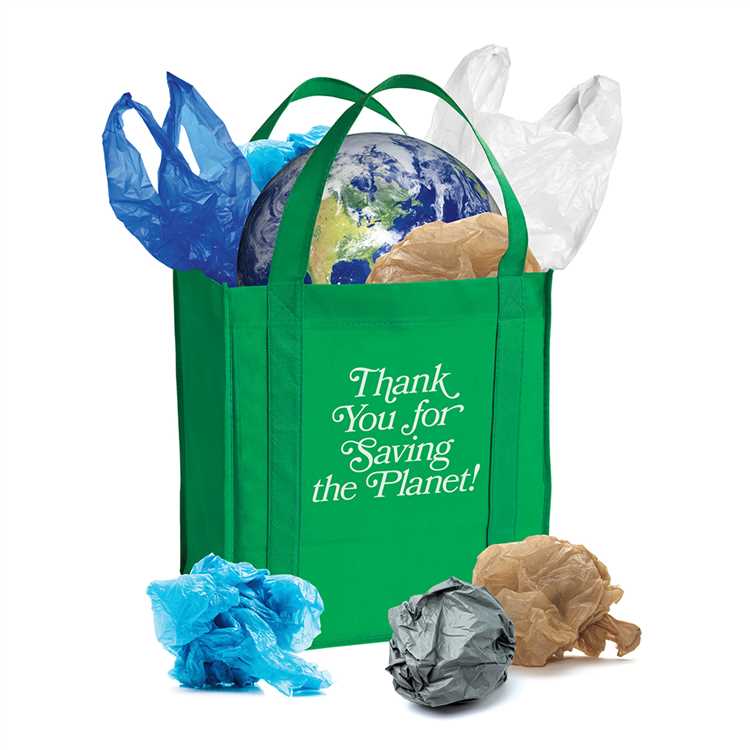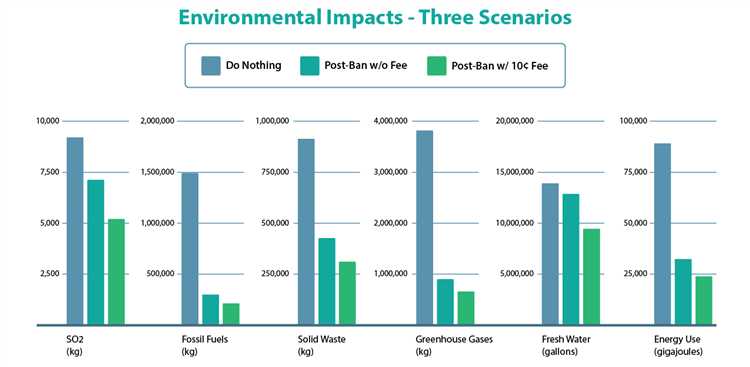In recent years, the issue of environmental conservation has taken center stage. One of the biggest concerns is the overuse of plastic bags and their harmful impact on the planet. In response to this problem, many countries and cities around the world have implemented a ban on plastic bags. This article will explore the reasons behind the plastic bag ban and how it is a crucial step towards energy conservation.
Plastic bags are known for their convenience, but they also come at a great cost. These bags are made from non-renewable resources such as crude oil and natural gas. The production process releases harmful greenhouse gases into the atmosphere, contributing to climate change. Additionally, plastic bags take hundreds of years to decompose, clogging landfills and polluting the environment.
The plastic bag ban aims to address these issues by promoting the use of reusable alternatives. By encouraging individuals to bring their own bags, the amount of plastic waste generated is significantly reduced. This not only helps to protect the environment but also conserves energy. The production of plastic bags requires a significant amount of energy, from extracting the raw materials to manufacturing and transportation. By reducing the demand for plastic bags, we can reduce our reliance on fossil fuels and decrease our carbon footprint.
Furthermore, the ban on plastic bags encourages innovation in the development of more sustainable materials. Alternative options such as cotton, canvas, or biodegradable bags offer a more eco-friendly solution. These materials are renewable, require less energy to produce, and have a shorter decomposition time. By promoting the use of these alternatives, we can pave the way for a more sustainable future.
While some may argue against the plastic bag ban, claiming that it inconveniences consumers, it is important to consider the long-term benefits. Energy conservation is a pressing issue that affects not only our planet but also future generations. By taking small steps, such as using reusable bags, we can make a significant impact on reducing our energy consumption and preserving our environment for years to come.
- The Global Environmental Movement
- Origins and Goals
- Key Players and Initiatives
- The Impact of Plastic Bags on the Environment
- 1. Pollution
- 2. Energy Consumption
- The Energy Consumption of Plastic Bag Production
- The Environmental Impact
- The Need for Energy Conservation
- Q&A:
- Why are plastic bags harmful to the environment?
- What is the purpose of banning plastic bags?
- How does banning plastic bags contribute to energy conservation?
- Will banning plastic bags inconvenience shoppers?
- Do other countries already have a plastic bag ban in place?
- What is the purpose of the plastic bag ban?
- How will the plastic bag ban conserve energy?
The Global Environmental Movement

The global environmental movement is a collective effort by individuals, organizations, and governments to address and combat the environmental challenges faced by our planet. With the recognition of the urgent need to conserve energy and protect our natural resources, this movement has gained momentum and support worldwide.
Origins and Goals
The origins of the global environmental movement can be traced back to the 1960s and 1970s when concerns about pollution, deforestation, and the depletion of natural resources began to rise on the international agenda. The movement aims to raise awareness about environmental issues, advocate for sustainable practices, and push for policy changes at local, national, and global levels.
The primary goals of the global environmental movement include:
- Promoting renewable energy sources and reducing reliance on fossil fuels
- Conserving biodiversity and protecting endangered species
- Preserving and restoring ecosystems, including forests, oceans, and freshwater sources
- Reducing pollution and promoting waste reduction and recycling
- Addressing climate change and mitigating its effects
Key Players and Initiatives

The global environmental movement is comprised of a diverse range of actors, including nonprofit organizations, grassroots activists, scientists, policymakers, and concerned citizens. These individuals and groups work both independently and collaboratively to drive change and push for environmental sustainability.
Notable initiatives within the global environmental movement include:
- The United Nations Framework Convention on Climate Change (UNFCCC), which aims to stabilize greenhouse gas concentrations and prevent dangerous human interference with the climate system
- The Intergovernmental Panel on Climate Change (IPCC), which provides scientific assessments of climate change and its impacts
- The Paris Agreement, an international treaty that aims to limit global warming to well below 2 degrees Celsius above pre-industrial levels
- The Green New Deal, a proposed economic stimulus package that combines job creation and sustainable development to address climate change and social inequality
The global environmental movement continues to grow and evolve as new challenges and opportunities arise. Through education, advocacy, and collective action, it seeks to create a sustainable future for all living beings on our planet.
The Impact of Plastic Bags on the Environment
Plastic bags have become prevalent in our society due to their convenience and affordability. However, their widespread use has resulted in significant negative impacts on the environment.
1. Pollution

Plastic bags are a major source of pollution, particularly in aquatic ecosystems. When not properly disposed of, they often end up in rivers, lakes, and oceans, where they pose a serious threat to marine life. Marine animals, such as turtles and whales, mistake plastic bags for food and can suffocate or starve as a result. Additionally, as plastic bags break down, they release harmful chemicals into the water, further polluting the environment.
2. Energy Consumption
The production of plastic bags requires a significant amount of energy and resources. The extraction of petroleum, the main raw material used in plastic bag production, contributes to carbon emissions and further exacerbates climate change. Moreover, the production process involves the use of fossil fuels, which further depletes finite resources.
Furthermore, the transportation and disposal of plastic bags also contribute to energy consumption. The transportation of plastic bags from manufacturing plants to distribution centers and then to retail locations results in the burning of fossil fuels and the emission of greenhouse gases. When plastic bags end up in landfills, they take a long time to decompose, further contributing to the release of greenhouse gases.
Given the significant impact of plastic bags on the environment, it is crucial that we find alternatives and reduce our dependence on them. The implementation of plastic bag bans and the promotion of reusable alternatives can help reduce pollution, conserve energy, and protect the environment for future generations.
The Energy Consumption of Plastic Bag Production

In recent years, there has been a growing concern over the environmental impact of plastic bags, particularly their contribution to energy consumption. The production of plastic bags requires a significant amount of energy, from the extraction of raw materials to the manufacturing process.
Firstly, the production of plastic bags begins with the extraction of petroleum, a non-renewable fossil fuel. The extraction process is highly energy-intensive and involves drilling deep into the earth’s surface. The transportation of petroleum to the plastic bag manufacturing facilities also consumes a considerable amount of energy.
Once the petroleum is obtained, it undergoes a series of chemical processes to convert it into polyethylene, the primary material used in plastic bag production. The conversion process involves high temperatures and pressures, which further contribute to the overall energy consumption.
After the polyethylene is obtained, it is then processed into thin films that are used to create plastic bags. This process requires the use of large machines that consume additional energy to heat and extrude the plastic material. The printing and cutting processes also contribute to the overall energy consumption.
The Environmental Impact
The energy-intensive production of plastic bags has several environmental implications. Firstly, the extraction of petroleum contributes to greenhouse gas emissions and environmental degradation. The drilling process can lead to habitat destruction, while the transportation of petroleum consumes fossil fuels and contributes to air pollution.
In addition, the chemical processes involved in converting petroleum into polyethylene release harmful byproducts, such as carbon dioxide and volatile organic compounds (VOCs). These pollutants contribute to air pollution and can have detrimental effects on human health and the environment.
The overall energy consumption of plastic bag production also contributes to climate change. The burning of fossil fuels and the release of greenhouse gases result in the accumulation of heat-trapping gases in the atmosphere, leading to global warming.
The Need for Energy Conservation
Given the significant energy consumption and environmental impact of plastic bag production, there is a pressing need to reduce our reliance on plastic bags. Implementing a plastic bag ban is one step towards energy conservation and reducing our carbon footprint. By encouraging the use of reusable bags and promoting alternatives to plastic, we can reduce the demand for plastic bag production and the associated energy consumption.
Furthermore, investing in research and development of sustainable materials and manufacturing processes can help decrease the energy-intensive nature of plastic bag production. By finding more energy-efficient alternatives and promoting recycling initiatives, we can mitigate the environmental impact of plastic bags and work towards a more sustainable future.
In conclusion, the production of plastic bags consumes a significant amount of energy and contributes to environmental degradation. Implementing measures to reduce plastic bag usage and promoting sustainable alternatives is crucial for energy conservation and mitigating climate change.
Q&A:
Why are plastic bags harmful to the environment?
Plastic bags are harmful to the environment because they take hundreds of years to decompose and are not biodegradable. This means that once they are discarded, they accumulate in landfills, pollute water bodies, and harm wildlife.
What is the purpose of banning plastic bags?
The purpose of banning plastic bags is to reduce the negative impacts they have on the environment. By eliminating the use of plastic bags, we can decrease pollution, conserve energy, and protect wildlife and ecosystems.
How does banning plastic bags contribute to energy conservation?
Banning plastic bags contributes to energy conservation by reducing the amount of energy required to produce, transport, and dispose of plastic bags. Plastic bags are made from petroleum, a non-renewable resource, so by using alternatives like reusable bags, we reduce our reliance on fossil fuels.
Will banning plastic bags inconvenience shoppers?
Banning plastic bags may initially inconvenience shoppers who are used to the convenience and availability of plastic bags. However, with the increased adoption of reusable bags and the availability of alternative options like paper bags, shoppers can easily adjust to the change.
Do other countries already have a plastic bag ban in place?
Yes, many countries around the world have already implemented plastic bag bans. Countries like Rwanda and Kenya have seen significant reductions in plastic bag usage and have witnessed positive environmental impacts. Additionally, cities and states in the United States, such as California and Hawaii, have also implemented plastic bag bans.
What is the purpose of the plastic bag ban?
The purpose of the plastic bag ban is to reduce the usage of single-use plastic bags in order to conserve energy and reduce environmental pollution.
How will the plastic bag ban conserve energy?
The plastic bag ban will conserve energy by reducing the need for plastic bag production, which requires the use of fossil fuels. The production of plastic bags also emits greenhouse gases, which contribute to climate change. By reducing plastic bag usage, we can decrease energy consumption and mitigate the negative impacts of plastic bag production on the environment.